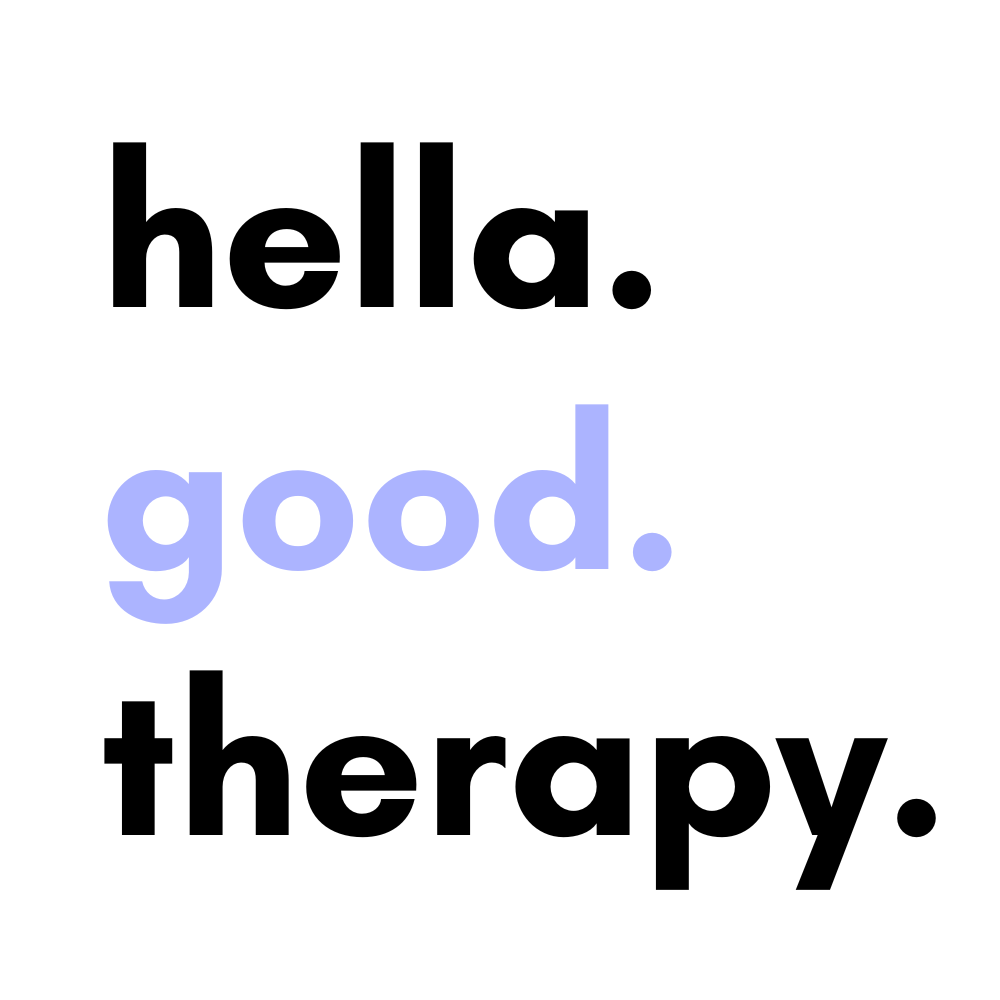Money Stuff
We do things a little differently at hella good.
We live out our mission of cultivating healing relationships on every level of our organization - which means money stuff is also centered around healing and being in relationship with one another.
We believe in equity, mutual care and non-hierarchical systems of power. Alas, we also live inside racialized capitalism, so we are experimenting with ways of making that work for everyone.
How do you set your therapy rates?
We use a tiered Pay What You Can system that is centered around the “true cost” of a therapy session. The true cost is exactly what it costs for hella good to pay our people, pay our bills, and break even.
We use that system to maintain a sustainable mutual aid structure where our clients are able to contribute or receive support for therapy AND our therapists and employees are able to be paid well.
When I pay for therapy, where does that money go?
When you pay the true cost of therapy, you are supporting:
$70-$95/hour for our clinicians
Full medical, dental, vision, matching 401(k), and paid time off for all employees
Non-exploitative business practices and a healing+supportive workplace for all employees
Meaningful and purposeful work for all of our employees
When you pay more than the true cost of therapy, you are contributing to:
More people being able to access sliding scale options
Folks being able to access lower sliding scale rates
More benefits for our employees - here are some benefits we dream of!
Mandatory and regular paid time off
A robust budget for continuing education and support for student loans and licensure costs
Paid time off for volunteering, social justice organizing, and providing free therapeutic services in the community
A stipend for our own personal therapy and ongoing growth and expansion
Contributing towards land tax, reparations, and BIPOC and queer artists, healers, and businesses on behalf of hella good
Get to the good stuff - how much is a session?
The true cost of a 50 minute session is right around $170.
Tier 1 - True Cost Tier
Pay-What-You-Can
$155 - $250+
*please reach out to us about how we can help you to use your insurance benefits to help pay for the cost of therapy
Tier 2 - Community Supported Tier
Currently Waitlist Only
Pay-what-you-can
$100 - $150
*limited availability. please reach out to us about current sliding scale availability.
How do I know which tier I am in? Or how much I should pay?
Honestly, the question should be: what is therapy worth to you? We suggest that the monthly cost of your therapy should feel like a real long term investment in yourself/your relationships/your life AND should elicit a sense of commitment to yourself and the process of growth and change. Take some time to consider what dollar amount reflects the value you hope to receive from participating in therapy. This is a very personal consideration and unique to you and your circumstances.
Below are suggested parameters to help you locate yourself within Tier 1 or Tier 2
Tier 1
You are able to easily meet all of your basic needs for food, water, shelter, and transportation
You are employed or don’t need employment to meet your basic needs
You own or lease your main mode of transportation
You own or rent your home without assistance
You have access to healthcare
You have access to a FSA/HSA or out of network insurance benefits
You can easily afford to purchase most of your material goods new (if you wanted to) rather than discounted, second hand, or donated
You have access to savings or family wealth and have expendable income for things like travel, concerts, supplies for hobbies, etc.
Tier 2
You often struggle to meet your basic needs for food, water, shelter, and transportation
You are unemployed or underemployed
You have limited or no access to transportation or use public transportation out of financial necessity
You are unable to consistently pay for housing without assistance
You are on state sponsored health insurance or quality for government aid like WIC
It is difficult to access healthcare and health related items like medicines or medical supplies
You are unable to purchase most of your material goods new (if you wanted to)
You do not have access to savings or family wealth and do not have expendable income for things like travel, concerts, supplies for hobbies, etc.
